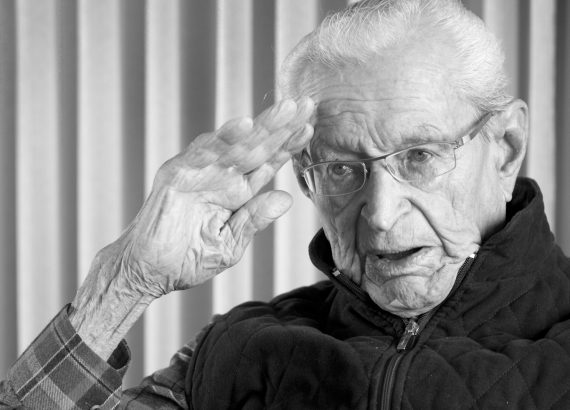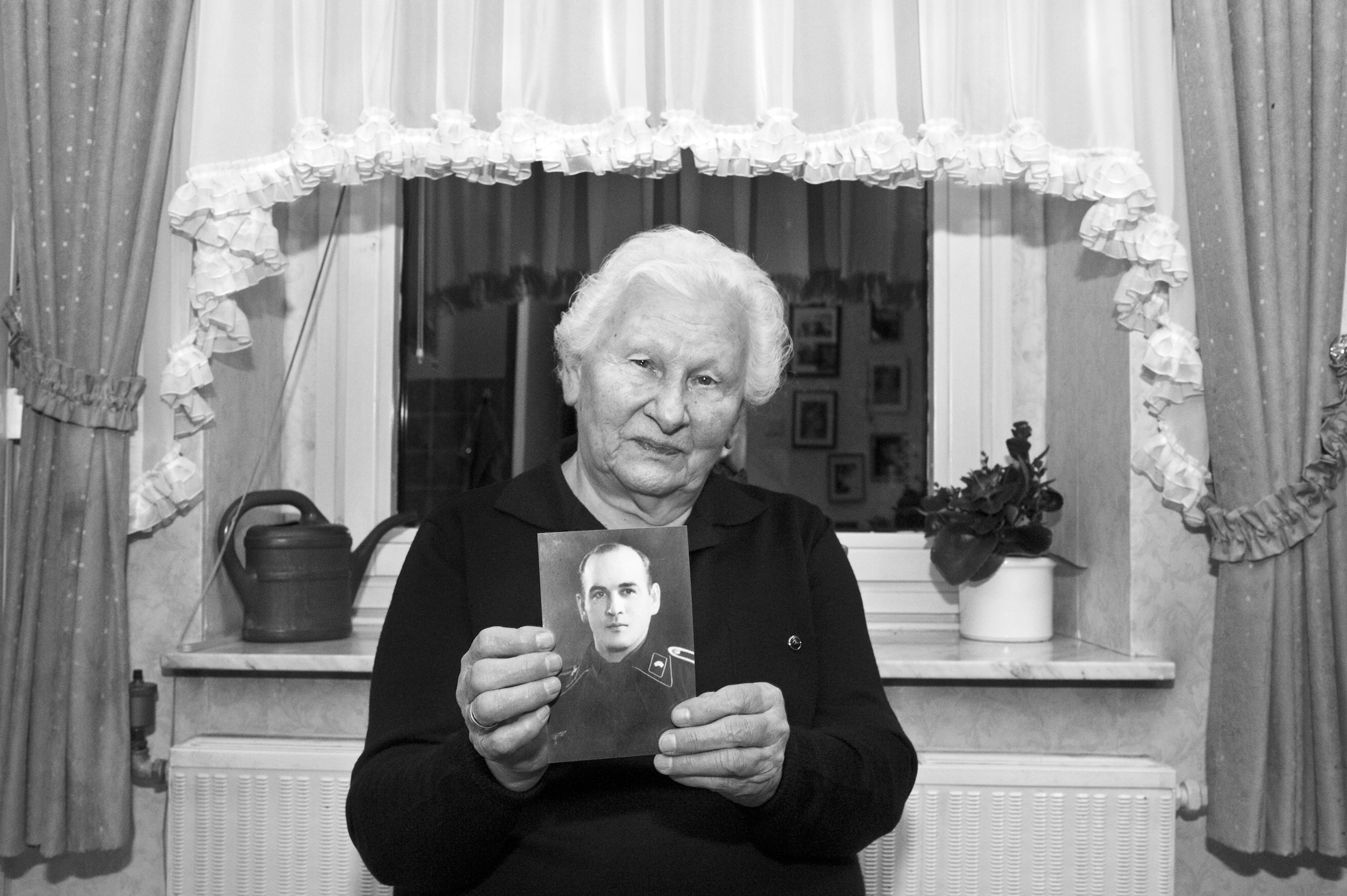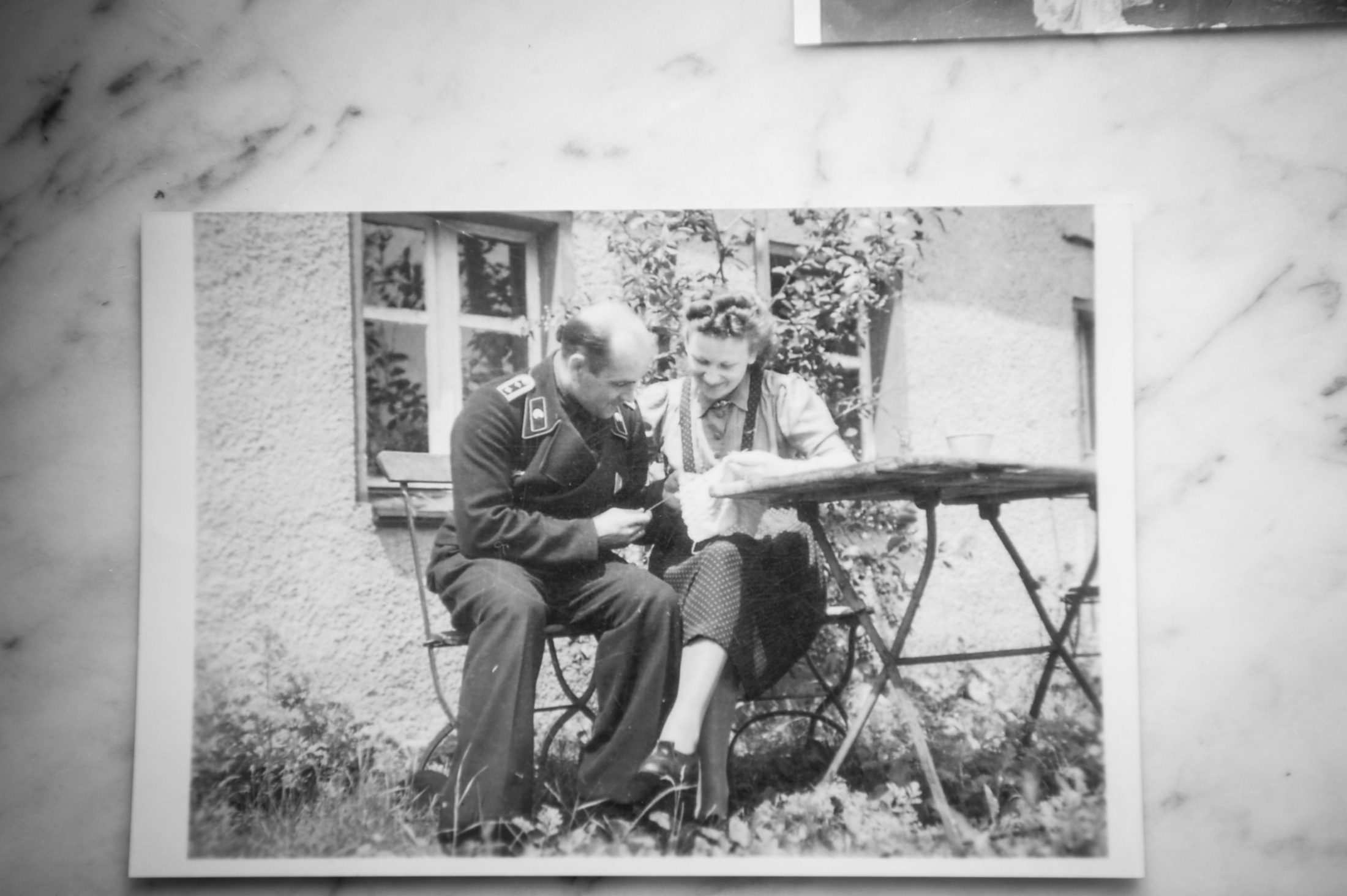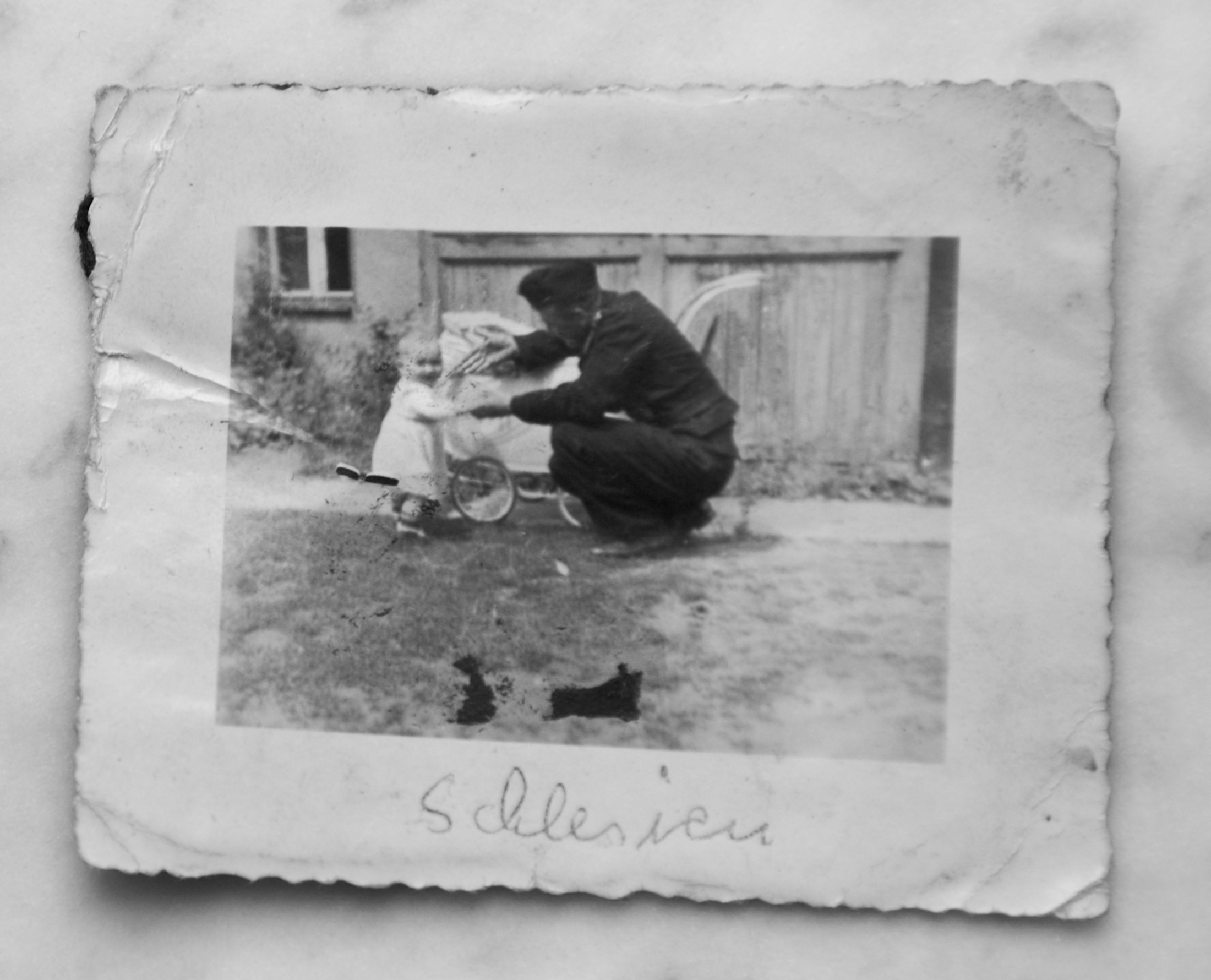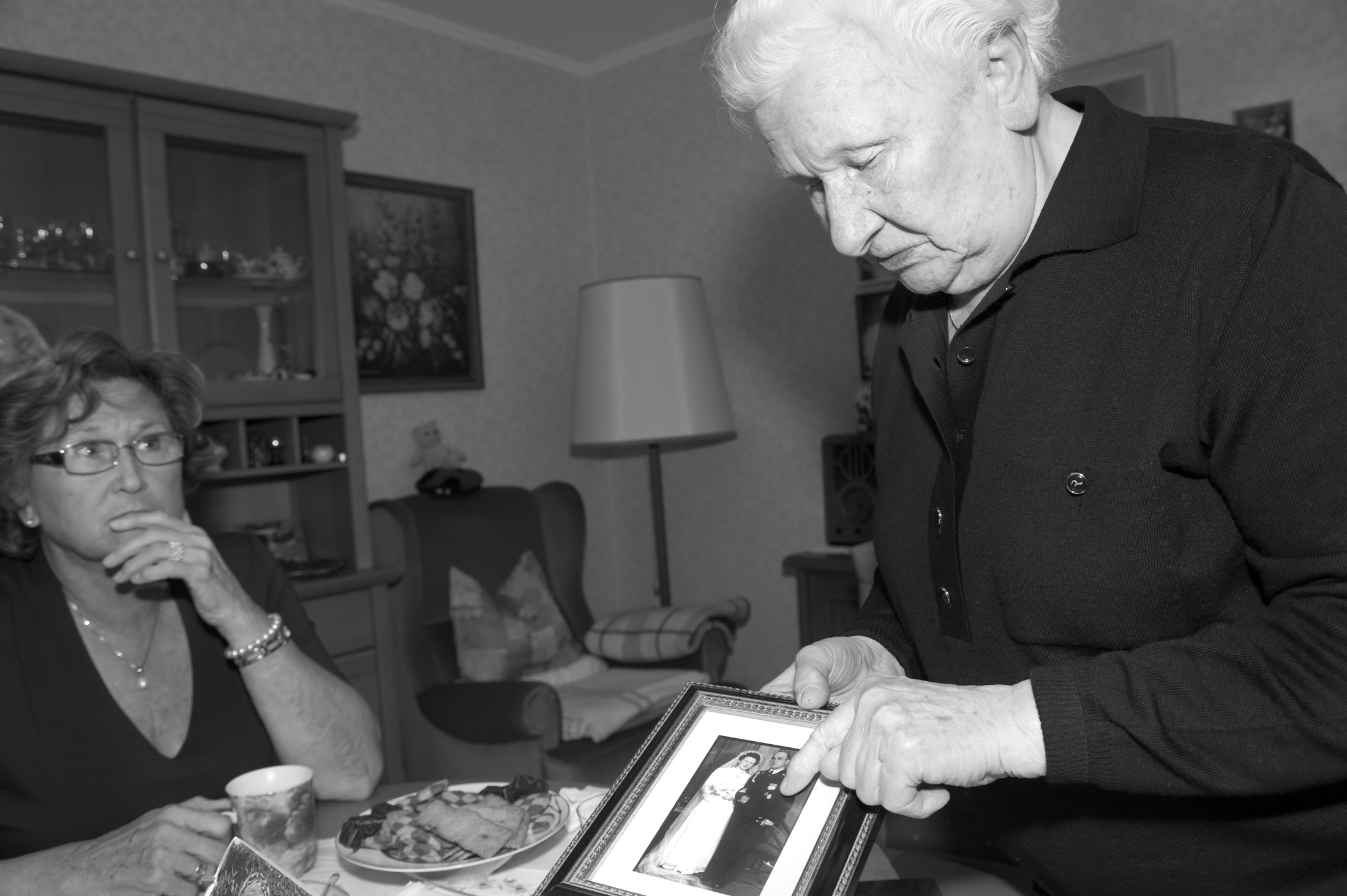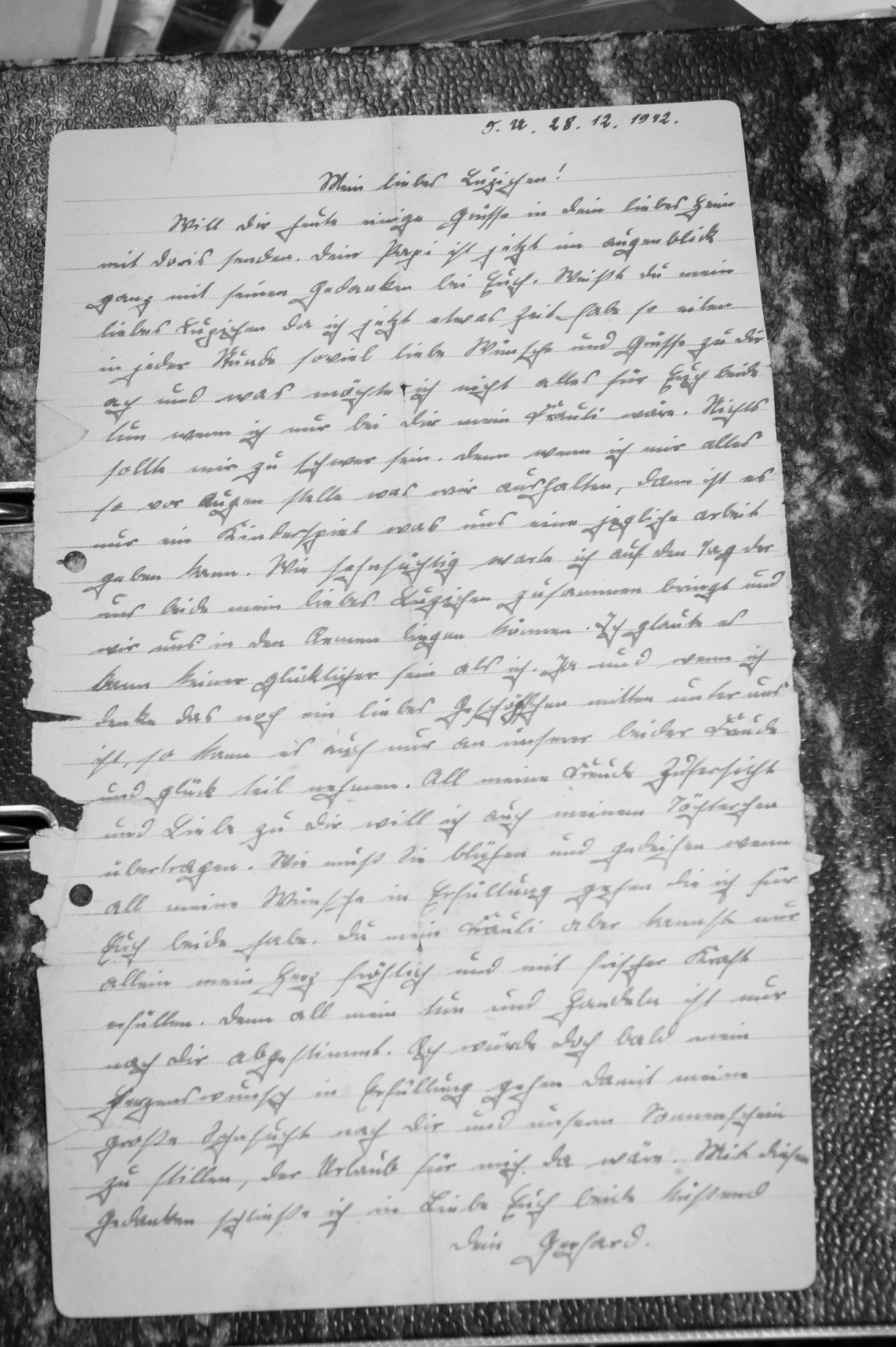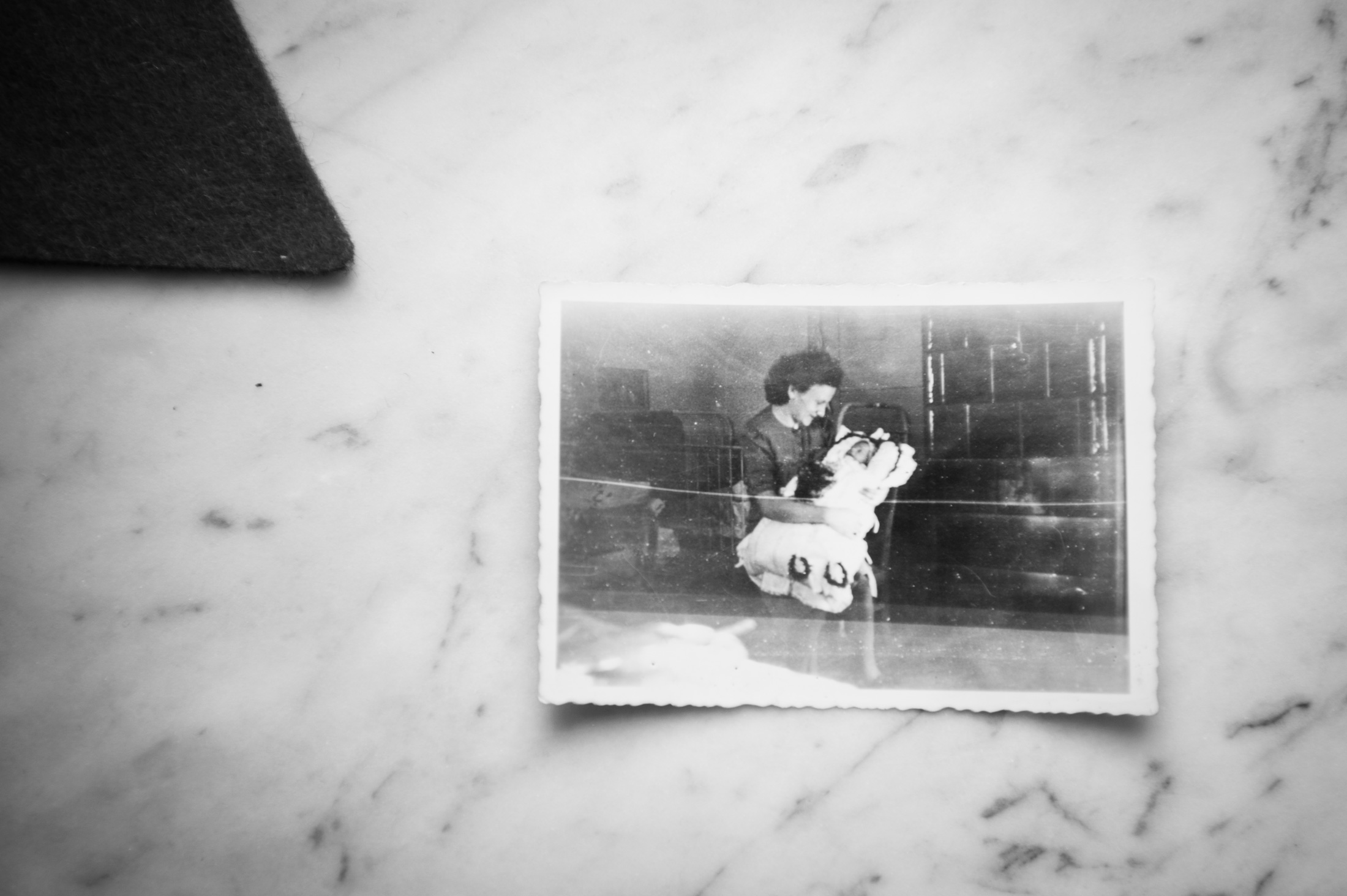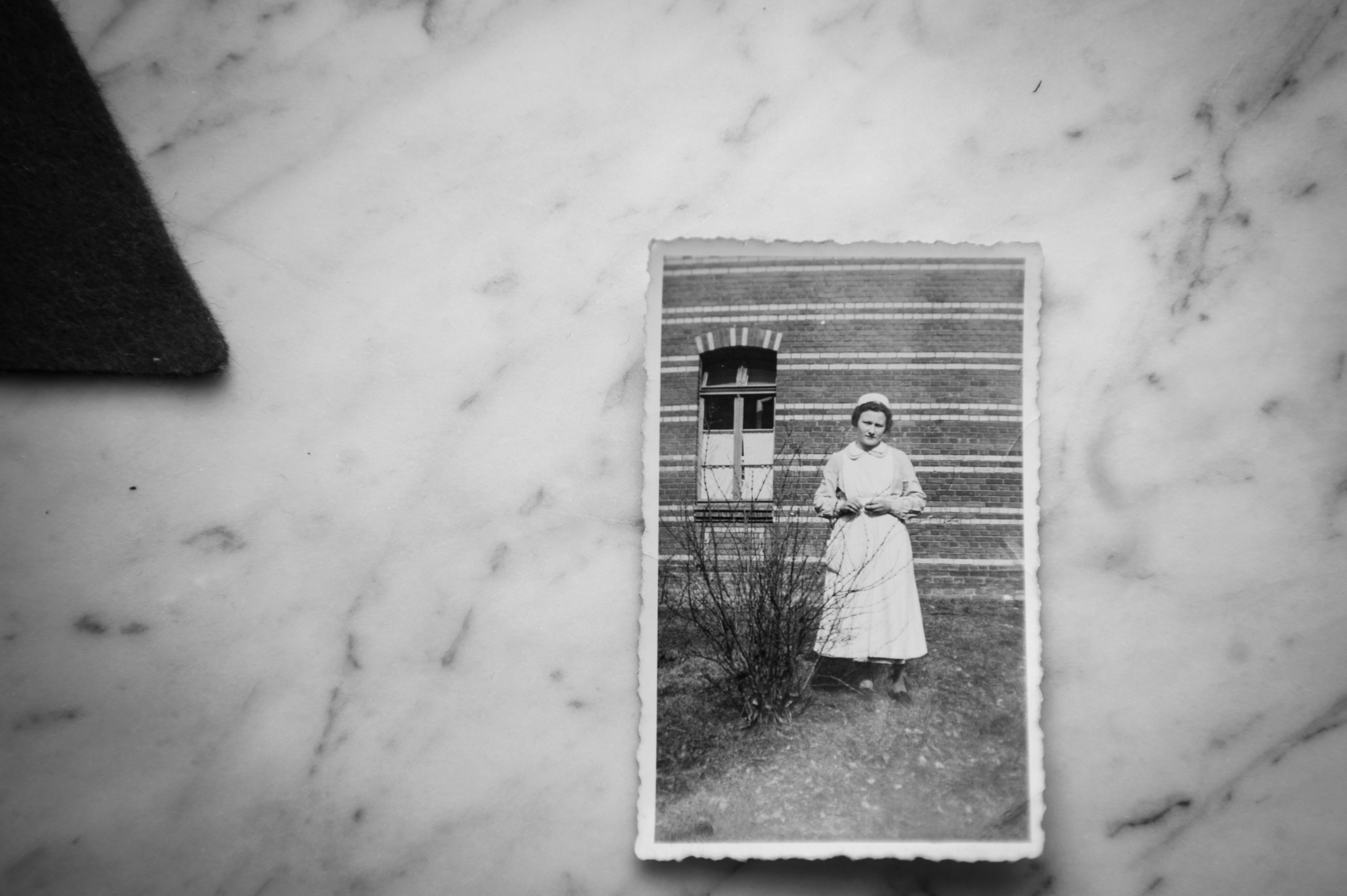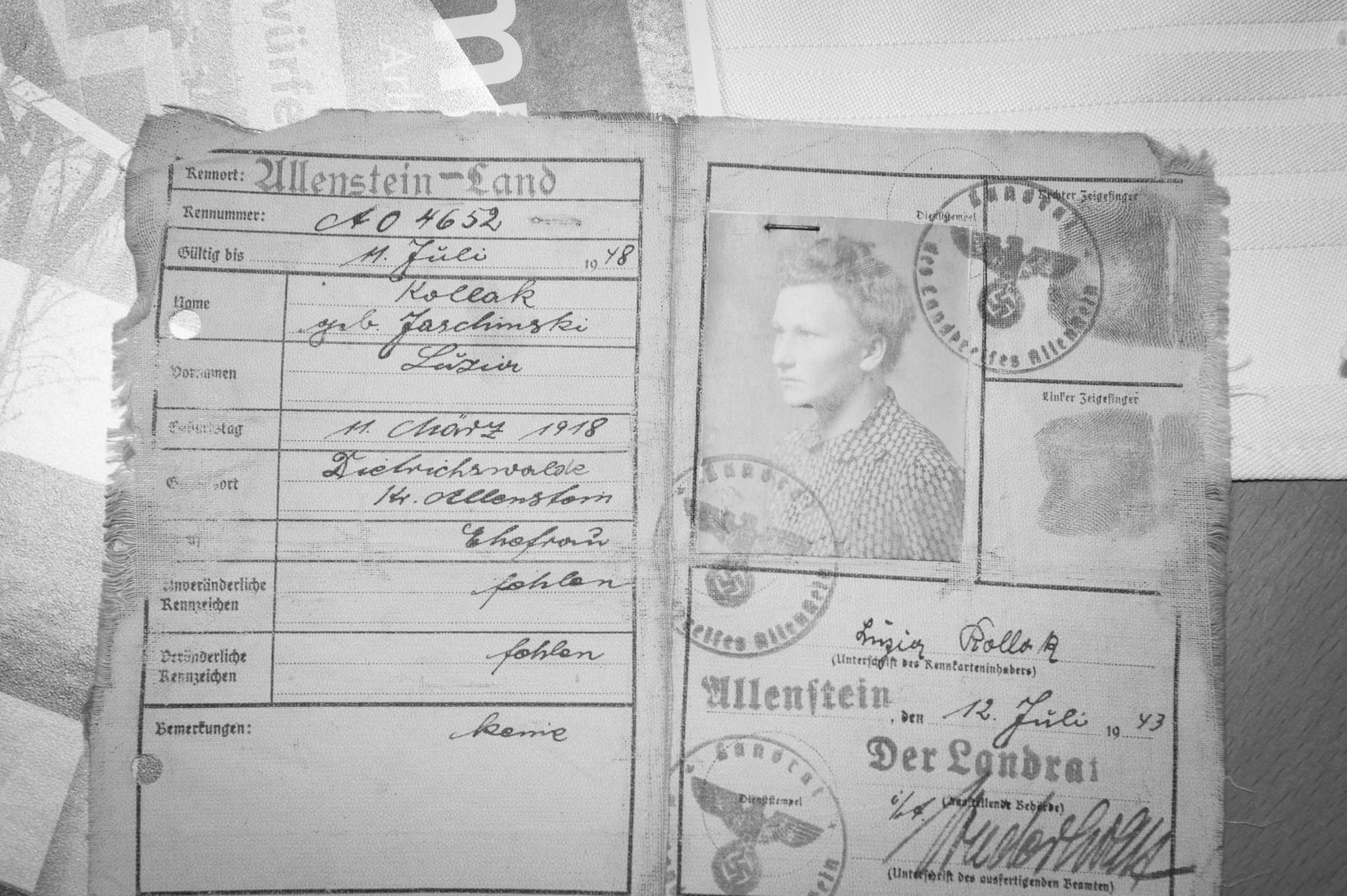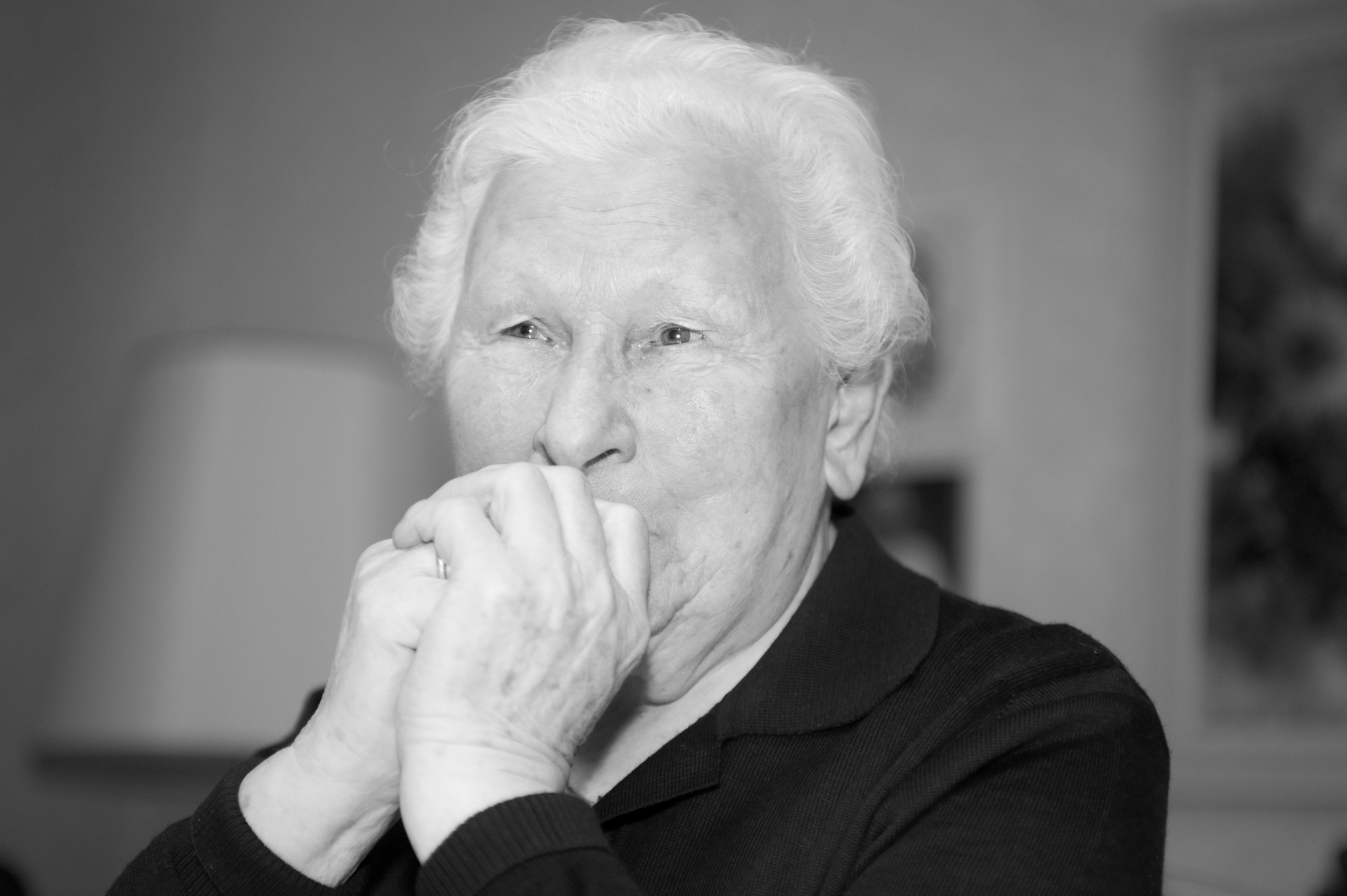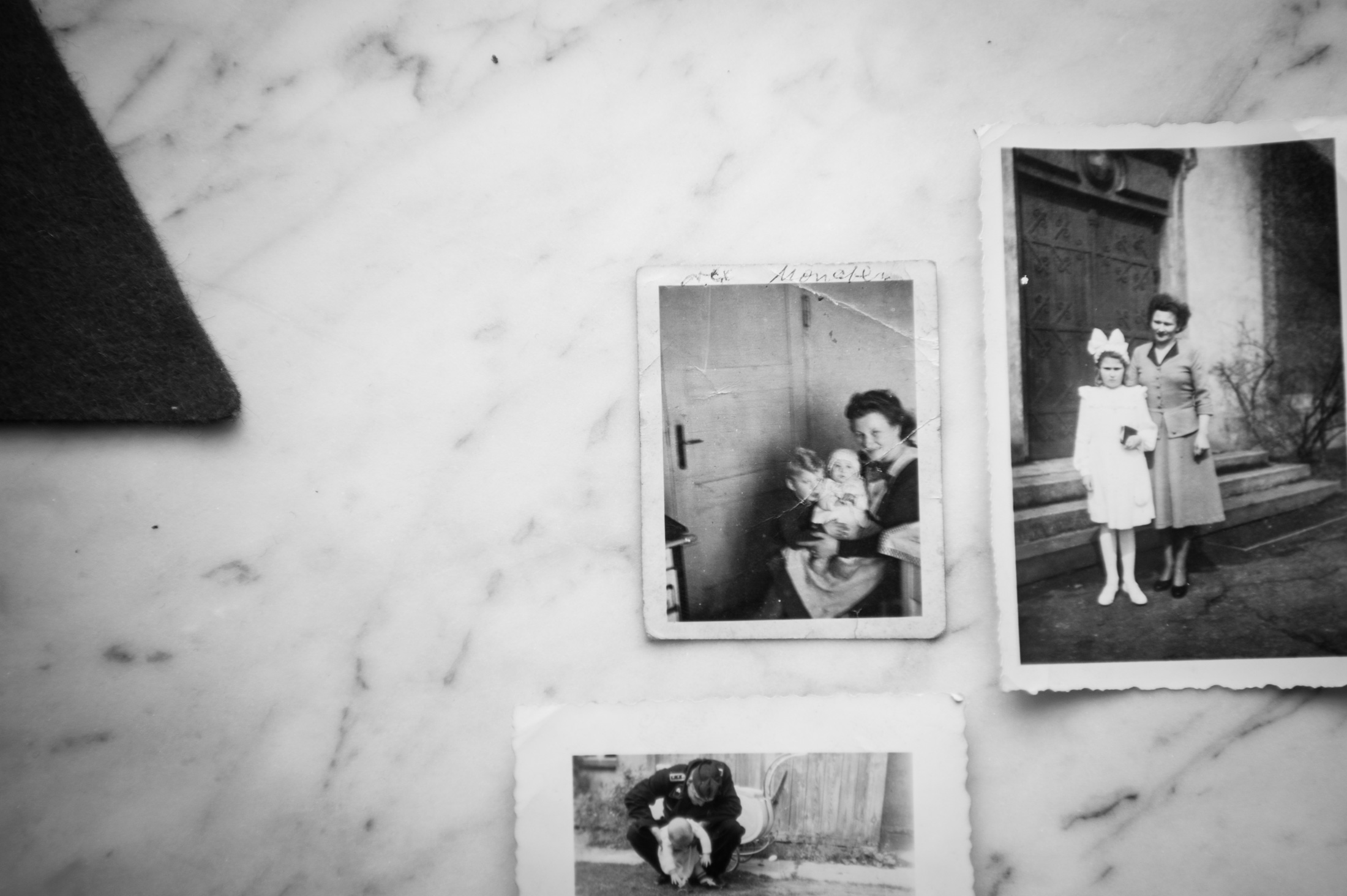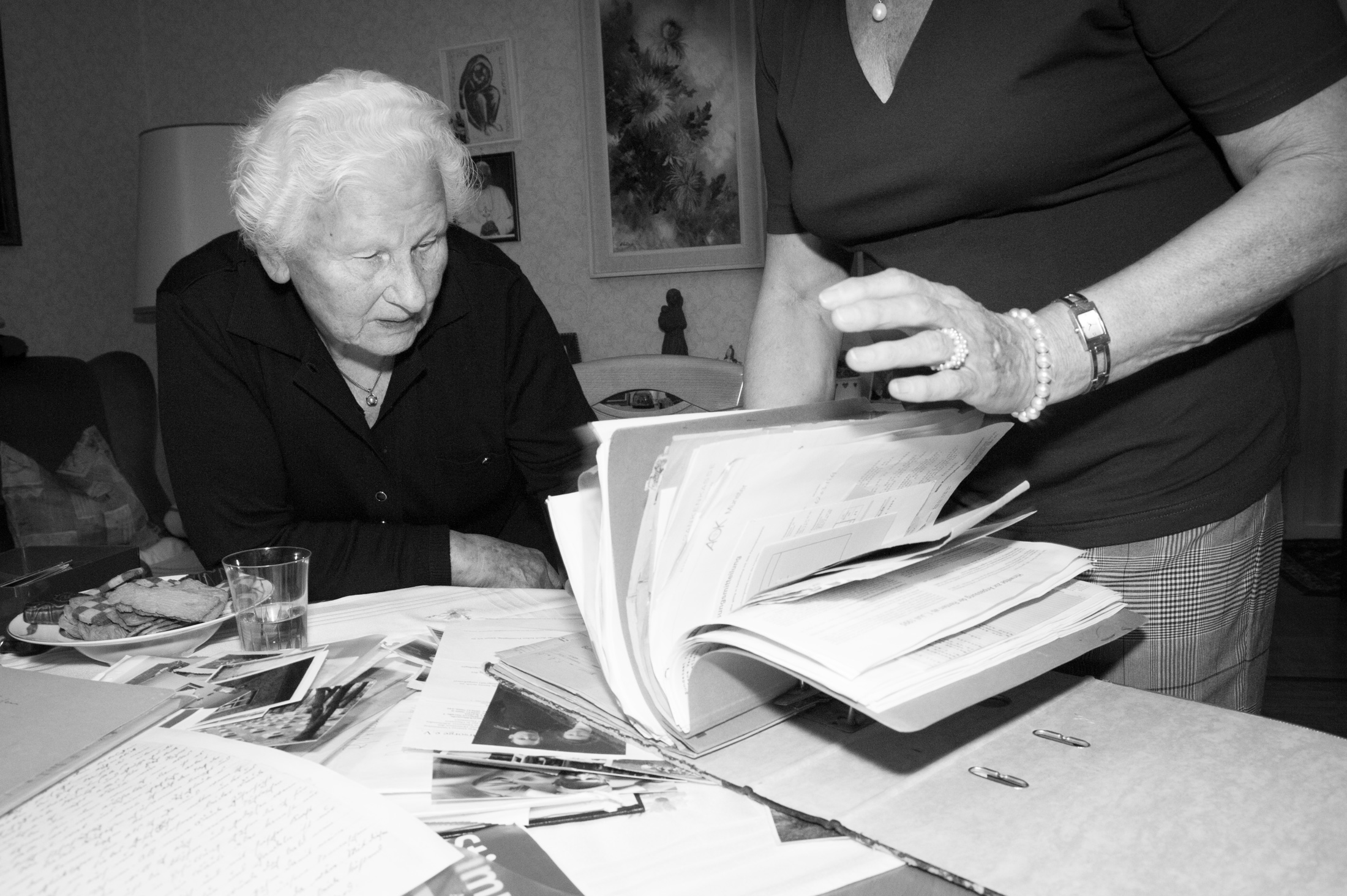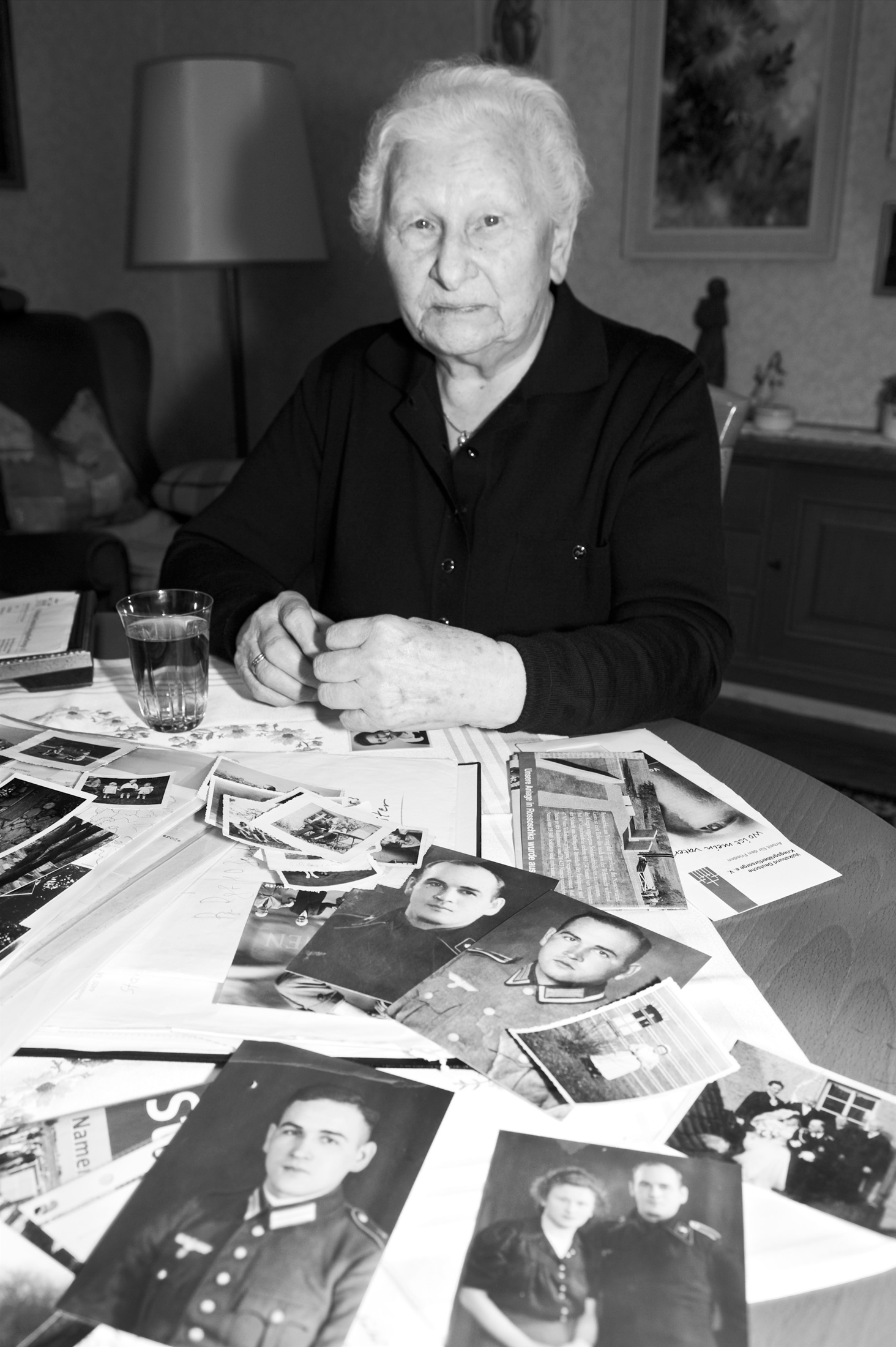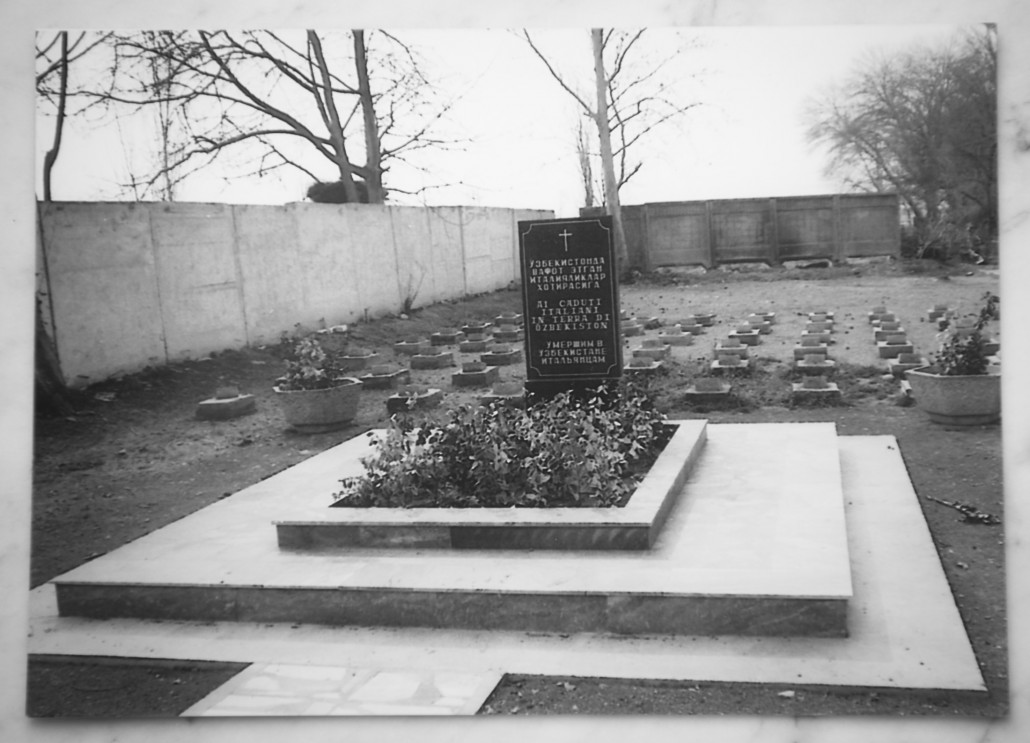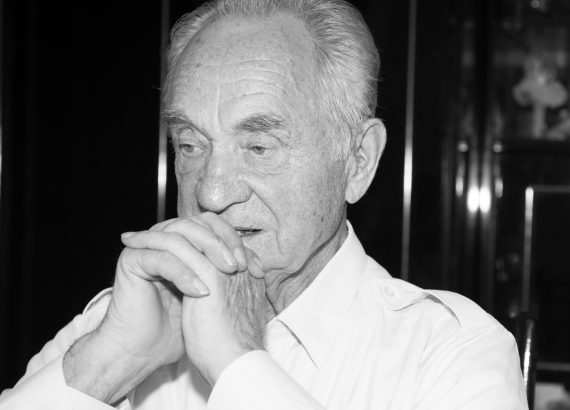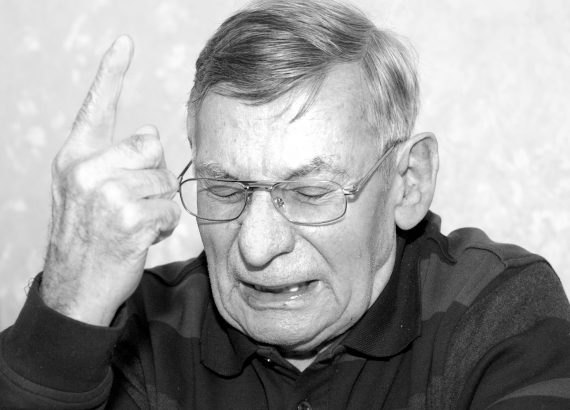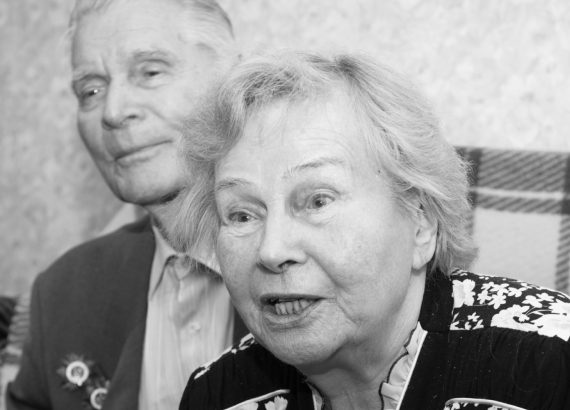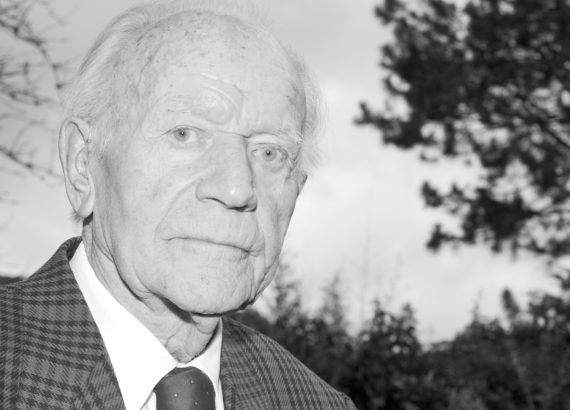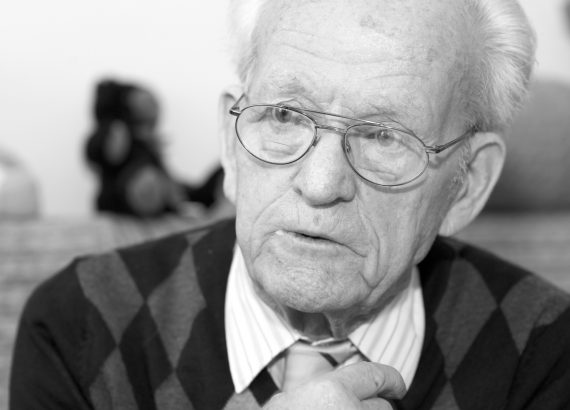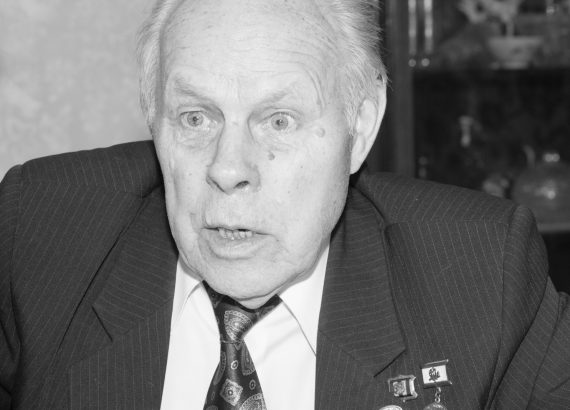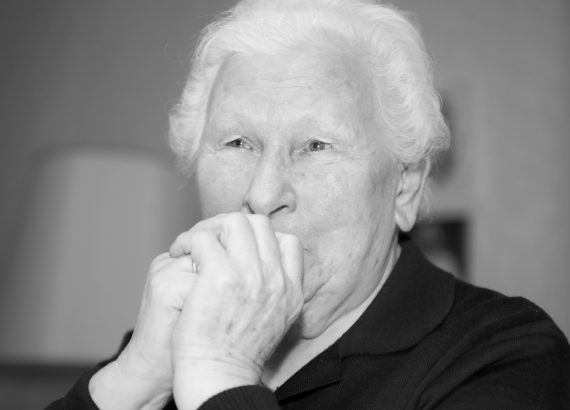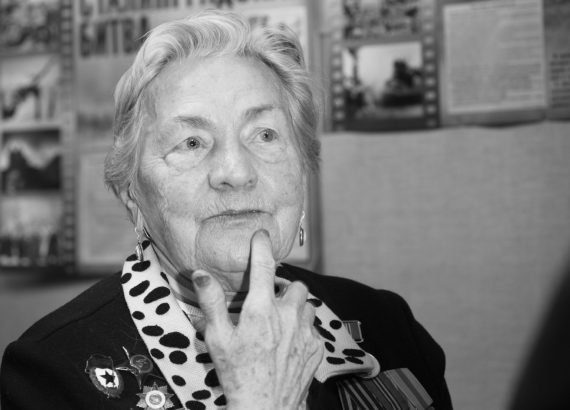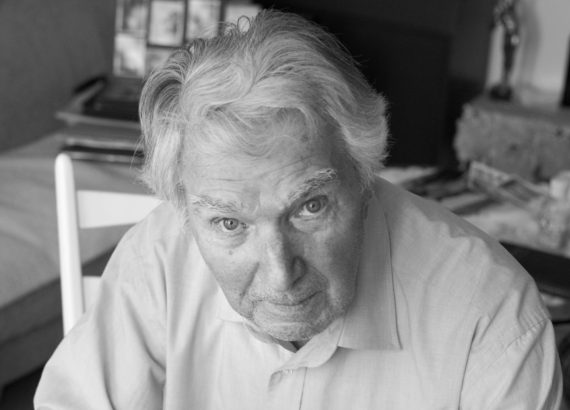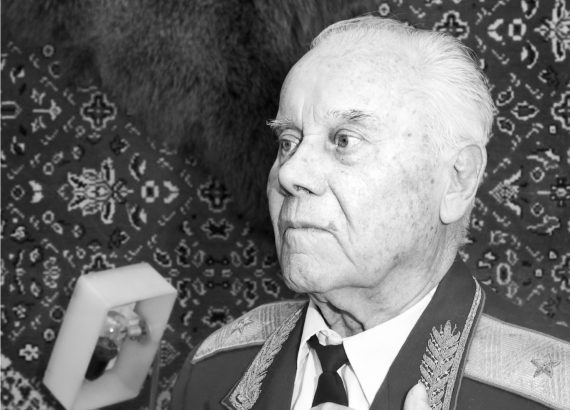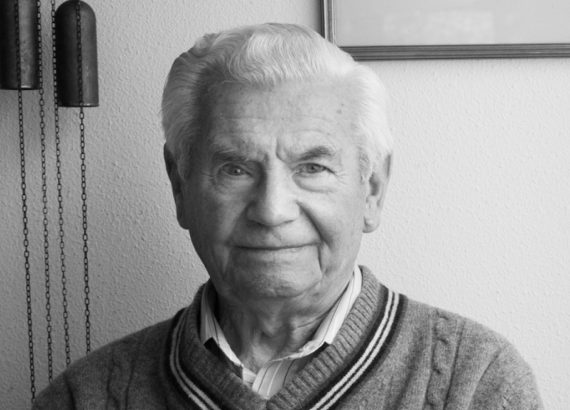Then we screamed with fear. They had…oh…two daughters. One was sixteen. They dragged her to the hayloft and raped her. She screamed. We heard her even where we were. And the old mother, oh, they threw her onto the road. Her skirts pulled up. I don’t know, why did that have to happen? Why did women have to suffer so much? Well, there were also good Russians.
Like the two officers who showed up. I said, the Lord has sent them. They saved us. Otherwise the soldiers would have shot us. Yes, one of them always held his Kalashnikov like this. Always like this. That was before the rape.
At that point in time they pulled me out of the bed. My daughter, thank God, she was asleep. She did not see what happened. They pulled me out of the house and in front of the house they turned me around and around: sssssss, and they repeatedly held me by the nose and turned me around. One of them had the knife here, in front, and the other one the Kalashnikov in my back. Yes, then I fainted and collapsed. I lay there, and was unconscious. They dragged me away across the bridge, over the river, deep into the forest, and then both raped me. First one of them…. and then… they bite when they do it. They bit me here, and blood ran over my body. And then they left me lying there and took off. I didn’t know where I was. Where was I? Where was my daughter? I stumbled around… it was dark; it was late evening when I wandered around in the forest. I was afraid and barefoot. My feet torn and bloody. And then I heard the splashing of the river. Oh, now I knew. It must be… If I go along here, I’ll be able to return.
I found the way back, and found my daughter. She was still asleep in the bed. Had not seen anything. And Mrs. Stütz, she helped me. We washed and bathed ourselves. But they had infected us. And we soon began to notice that we were in pain. And everything was different. We needed a doctor, but where? We were scared. It was far away. Where was the next village? The villages were far and few between there. And Mrs. Stütz said, “We’ll go to a doctor in Gutau,” but we could not walk on the country road. The Russians were everywhere. So we went across ditches, through the woods. We arrived and waved. Someone saw us and let us in through the backdoor. Secretly, because the Russians were staying at the front of the house. We heard them hollering and yelling. He examined us and said, “I’ve buried it in the garden; I knew that they would come.” He had buried a lot of medicine in the garden, to be on the safe side. And then he helped us, gave us medicine. Thank God. But I was scared, and it had not yet healed properly.
…From the hospital in Vienna, I had this ambulance board. I could prove that they had infected me, the Russians, and that I was sick and had worked like a horse.
